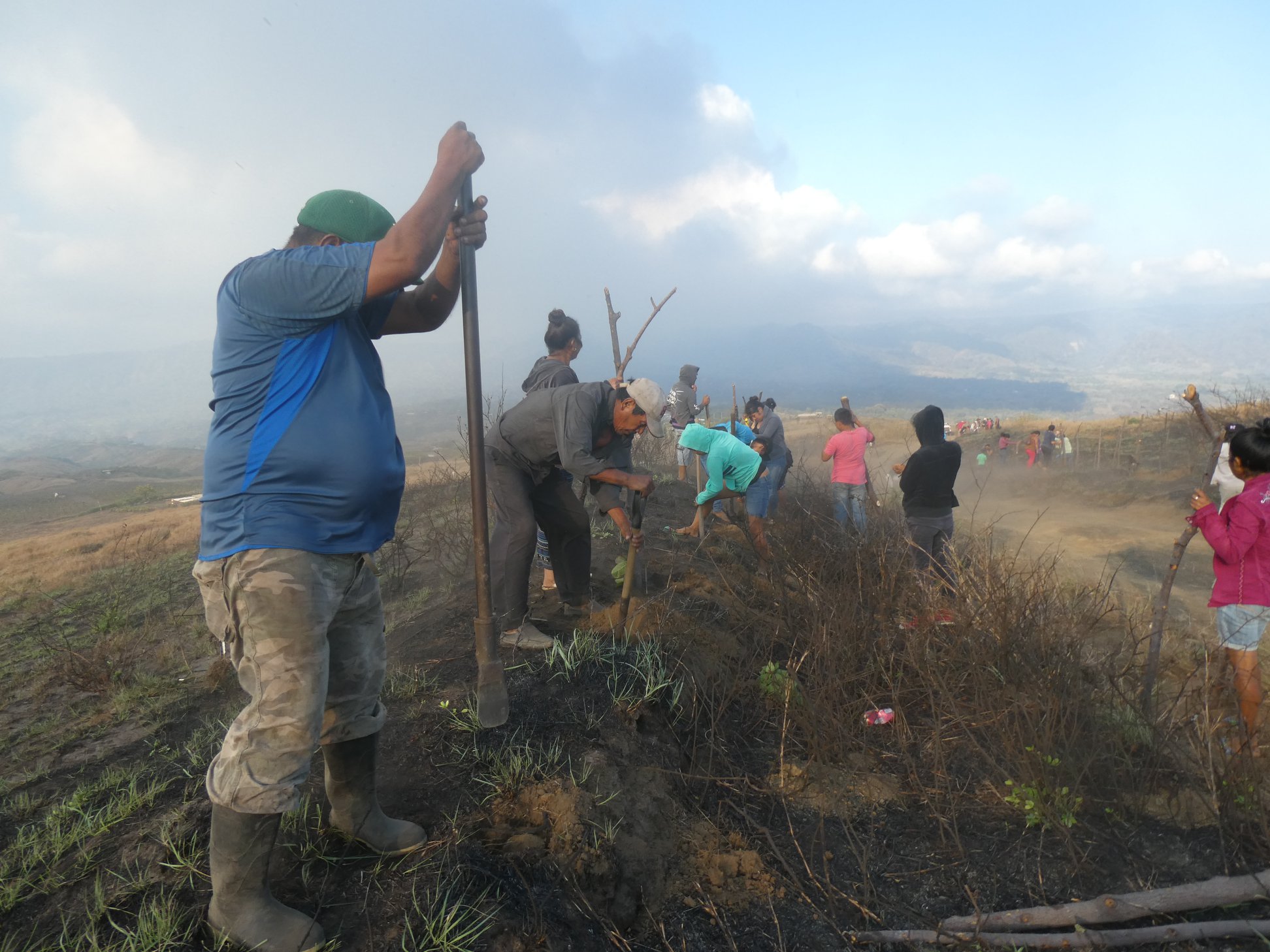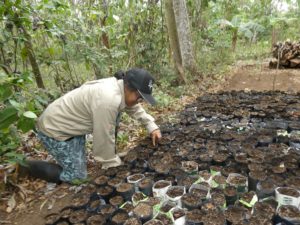Tropical Trees For Life

The status quo is NOT sustainable.
What we are doing about it.
- Focus on Reforestation instead of maintaining the status quo – Many carbon offset programs simply focus on slowing down deforestation. While we should do all we can to prevent further deforestations, our focus is on new growth.
- Supporting communities and involving them in reforestation efforts – We involve entire communities in reforestation efforts and see this as key to long term sustainability.
Offsetting Your Travel Carbon Footprint
Many of us feel this way and of course the future existence of La Mariposa is dependent on people from North American and Europe coming to us to study Spanish etc.
But we all know now that travel, especially by air, is one of the most damaging things we can do. What can we do to mitigate this? Travel less, stay at a destination for longer periods, and give something back to the planet! Inspired by the concept of carbon offsetting, one way to give back is to help us support tree conservation, planting and reforestation schemes to sequester carbon dioxide. Tropical trees GROW much faster than in the northern hemisphere so can absorb more carbon dioxide and greenhouse gases.
Other Donation Options:
$500 – Buys Variety of Trees
Who We Are
We are NOT a single issue organisation but undertake projects in a wholistic way in poor communities (both rural and urban) as we understand the connections between helping people, animals, and the environment
We seek to create sustainable models that have a high impact on the local communities and enviroment. This starts with La Mariposa Spanish School & Eco Hotel. Money raised from guests visiting La Mariposa is put directly back into these programs.
Our Tree Planting Record
- When we started 11 years ago
- Where we have planted
- How many we have planted:
- 2019 – 17,000 trees planted
- 2020 – 11,000 – less due to Covid
- 2021 – between 25,000 and 30,000
- Over 40 Species of trees planted

Why planting trees is not the only thing we do
- Water scarcity – many people especially in the barrios of Panama and Palo Solo are making the connection between deforestation and the disappearance of local sources of wáter such as springs drying up. Municipal wells also appear to be running dry now. So we deliver wáter by tanker
- Focus on monoculture (pineapple, dragón fruit – driven by the lure of export wealth) has led to a loss of food crops being planted. Combined with loss of income due to Covid, rise in unemployment and steep rise in food prices – we help out with monthly food donations.
- We also work with the same poor communities on weekly environmental education sessions, including visiting a local national park – Mombacho, a dormant volcano with abundant cloud forest – perfect for demonstrating the beauty and relevance of trees to the survival of the human race. Emphasis on role of nature in our physical and mental health. Other themes cover soil fertility, wáter issues, impact on temperature and shade, loss of biodiversity and impact of modern agriculture on both the health of the planet and our own bodies.
- As a result of our involvement with these communities, up to 50 volunteers per day come to help us plant tree seeds in our tree nursery. And these communities become more and more enthusiastic about the need for planting trees and the impact.
- Work we do on biodiversity – native bee project, nature reserve where flowering plants are conserved to encourage insects for pollination – dragón fruit now being pollinated by hand in some areas. Gardens planted with insect friendly flowers. Taking care of vulnerable native fauna such as bats, iguana, monkeys, birds and encouraging people to see wildlife as important to our own existence.
- Work with Health Authority – trash collection in barrios, sterilisation days to reduce no of street dogs
- Eco cooker project – history of this, currently closed as lack of funds. But could be a critical part of tree conservation as they use 50% less firewood and 100% of the population, for example, of Palo Solo is dependent on firewood for ALL their cooking needs.
- Integrating environmental issues generally (recycling, collecting trash from the streets, collecting seeds) and the importance of trees in our children’s Reading (appropriate books) and after school projects –
- Organic compost project – selling cheap compost from worms and manure in an effort to improve soil quality (together with encouraging the use of leaf mold and not burning organic “trash”)
Our yearly program
Feb – April – (end of dry season) – start filling bags with compost and soil for planting tree seeds. We use recycled bags when possible – this year we have had a fantastic response from the communities where we work closely (donating food and water especially) in sending volunteers to our nature reserve where we have the tree nursery. Between 20 and 50 volunteers per day.
March – April – collection of tree seeds from whatever source is available. We collect seeds ourselves from our own land, pay local people a small amount to bring us seeds from the communities, ask for seeds from trees in public places eg parks.
May – seeds planted in the bags.
The fast growing trees will take 2 to 3 months to grow to a size where they can be planted out. Some take longer and some will stay in the nursery until next year.
From Feb onwards we begin the process of talking to community leaders, making contacts and seeing where the trees can best be planted. We often combine reforestation days with short education sessions for community members
